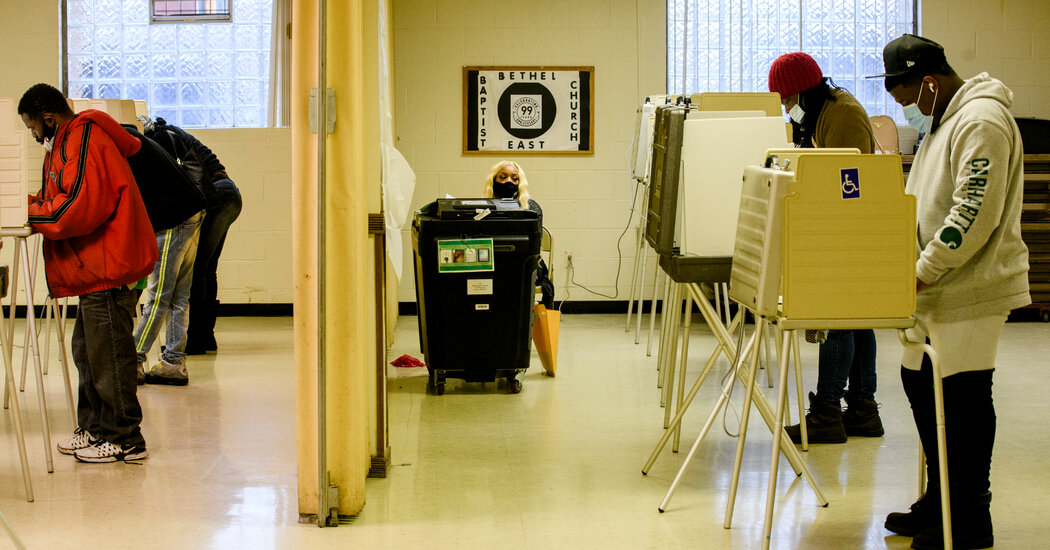
“The goal of creating partisan fairness cannot so negatively impact Black communities as to erase us from the space,” said Adam Hollier, a state senator from the Detroit area. “They think that they are unpacking, because that is the narrative that they hear from across the country, without looking at what that means in the city of Detroit.”
Republicans were also discussing possible challenges to the new maps.
“We are evaluating all options to take steps necessary to defend the voices silenced by this commission,” Gustavo Portela, a Michigan G.O.P. spokesman, said in a statement Wednesday, without elaborating on whose voices he meant.
The G.O.P. advantage in Michigan’s Legislature has held solid for years even as Democrats carried the state in presidential elections and won races for governor and U.S. Senate. In 2014, Senator Gary Peters, a Democrat, won the seat formerly held by Carl Levin by more than 13 percentage points. Yet in the same year, Republicans in the State Senate expanded their supermajority, winning 27 of 38 seats.
So great a divergence between statewide and legislative elections is often a telltale sign of a gerrymandered map. And a lawsuit in 2018 unearthed emails in which Republicans boasted about packing “Dem garbage” into fewer districts and ensuring Republican advantages “in 2012 and beyond.”
But the new State Senate map would create 20 seats that President Biden would have carried in 2020 and 18 that former President Donald J. Trump would have carried, giving Democrats new hopes of competitiveness.
The new maps offer no guarantee that Democrats will win either chamber, however. And in a strong year for the G.O.P., which 2022 may be, Republicans could retain their advantage in the Legislature and could also come away with a majority of the state’s new 13-seat congressional delegation.
The congressional map includes three tossup seats where the 2020 presidential margin was less than five points, and two more seats that could be competitive in a wave year, with presidential margins of less than 10 points. Two current Democratic representatives, Haley Stevens and Andy Levin, were drawn into the same district, setting up a competitive primary in the 11th District. Both declared their intention to run on Tuesday.




